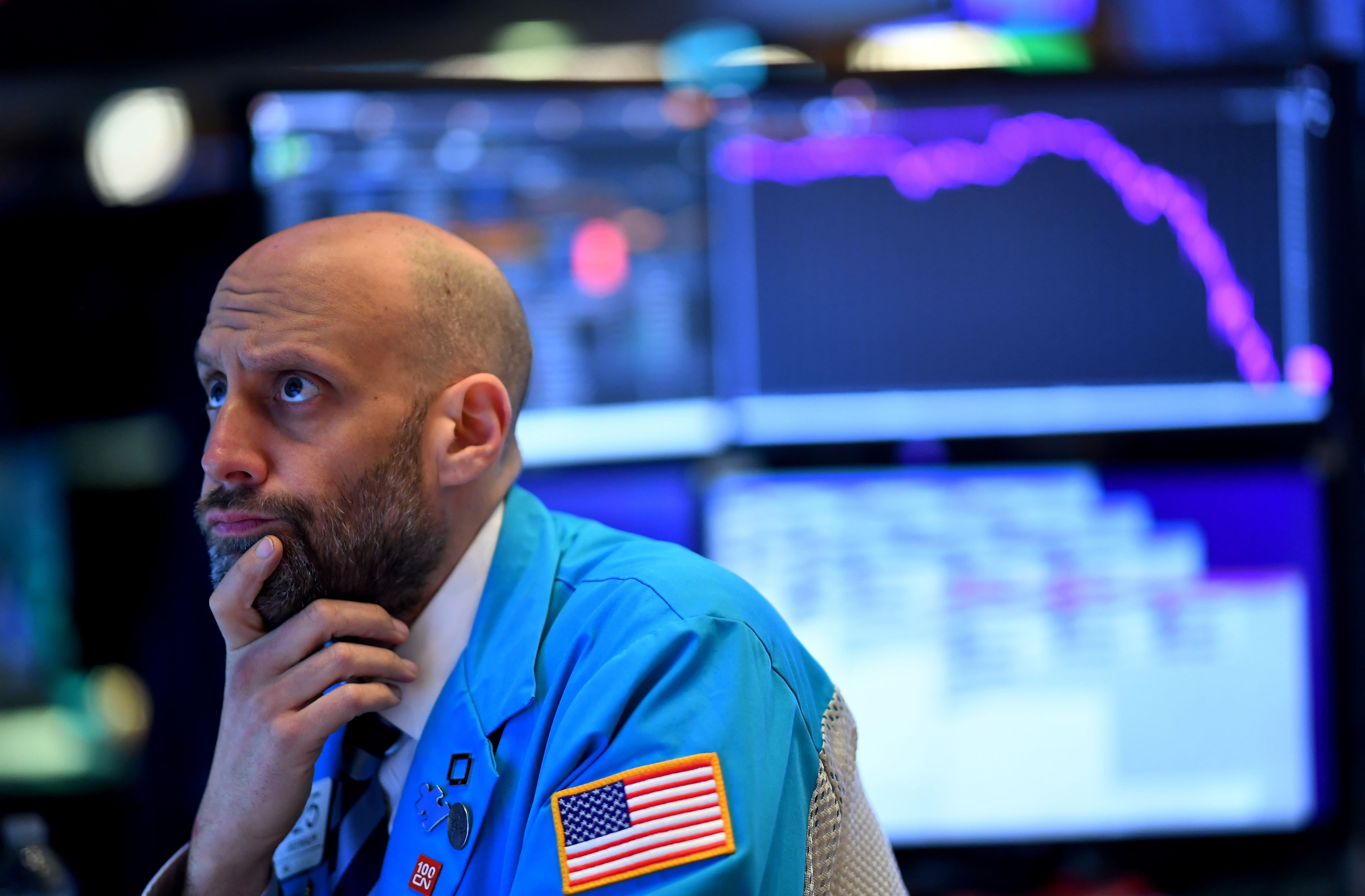Dow drops 600 points as market extends decline

The market rout intensified on Tuesday as selling in higher-priced technology shares spilled over to everything from bank stocks to energy and industrials.
The Dow Jones Industrial Average slid 600 points, led by declines in Home Depot and Boeing. The blue-chip benchmark is now on pace for its worst day in more than two months. The tech-heavy Nasdaq Composite lost 1.6%. The S&P 500 traded 1.5% lower as all 11 sectors fell into negative territory.
“What started in technology earlier this month has finally moved over to the broader markets,” said Ryan Detrick, chief market strategist at LPL Financial. “Although we are coming off a record earnings season, continued supply chain and labor shortages are adding to potential inflationary pressures.”
The CBOE Volatility Index, a measure of fear in the markets derived by option prices on the S&P 500, jumped as high as 23.73, levels not seen in two months. The so-called VIX remained stubbornly above 20 for most of last year before dropping to a low below 16 last month. A rising VIX is often accompanied by falling markets.
Top investor Stanley Druckenmiller shared concerns on CNBC’s “Squawk Box” Tuesday morning that also unnerved investors.
While Druckenmiller said he was still long stocks somewhat, the hedge fund manager said assets were in a “raging mania” and that the Fed and U.S. government risked endangering the U.S. dollar’s reserve status by injecting too much costly stimulus into an already hot economy.
“I can’t find any period in history where monetary and fiscal policy were this out of step with the economic circumstances, not one,” Druckenmiller said. “If they want to do all this and risk our reserve currency status, risk an asset bubble blowing up, so be it. But I think we ought to at least have a conversation about it.”
Big Tech stocks were all in the red once again Tuesday. Apple dropped more than 2%, while Facebook, Alphabet and Amazon were all down more than 1%.
Tesla shares, the poster boy for growth stocks with lofty valuations and expectations, fell more than 4%. A Reuters report that the electric carmaker halted plans to expand its Shanghai plant into an export hub, also aided the decline.
Tech shares, which were the biggest pandemic winners, fell out of favor earlier this year as fears of inflation and higher interest rates crept up. Growth-oriented companies tend to get hit hard by rising rates as they erode the value of their future earnings.
“Market weakness [is] due to rising inflation concerns and whether fed will be forced to raise rates,” said Michael Katz, partner at Seven Points Capital. “Initial gap had some short covering and then the markets resumed lower trend.”
The latest headlines including a labor shortage as well as a jump in Consumer Price Index in March helped fuel inflation worries.
Job openings soared to a record high in March as employers struggled to find workers to fill those positions, the Labor Department reported Tuesday.
Even as help wanted jumped from February by 597,000, or 8%, to 8.12 million, hires rose just 215,000, or 3.7%, to just over 6 million.
Big Tech got clobbered on Monday as investors exited stocks like Apple and Microsoft, dragging the Dow Jones Industrial Average and the S&P 500 off their record highs in the process. Both of those stocks lost at least 2% to start the week.
The Nasdaq Composite suffered the worse of the selling and fell 2.5%, finishing the day at its session low on Monday. Facebook lost more than 4%, while Amazon and Netflix both dropped over 3%. Alphabet dipped more than 2% after a downgrade by Citigroup. Cathie Wood’s Ark Innovation ETF fell 5% to its lowest level since November as Tesla, its top holding, shed more than 6%.
Become a smarter investor with CNBC Pro.
Get stock picks, analyst calls, exclusive interviews and access to CNBC TV.
Sign up to start a free trial today




